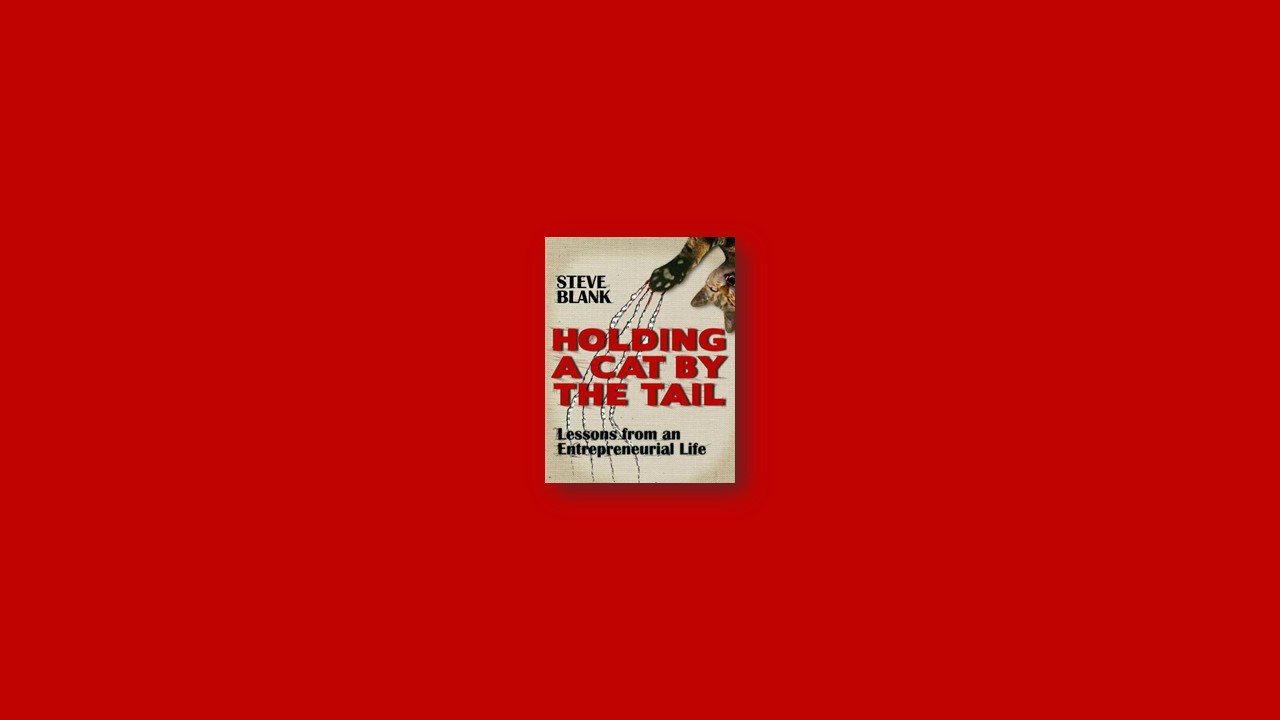Entrepreneurs as Dissidents
Entrepreneurs require the same creative freedom as artists and dissidents.
Without that freedom, countries will be relegated to cloning others’ business models or creating better versions of existing products.
History has shown that the most creative people leave repressive regimes and create elsewhere.
Entrepreneurship Is an Art, Not a Job
Founders fit the definition of an artist: they see—and create—something that no one else does.
To help them move their vision to reality, they surround themselves with world-class performers.
Founders and entrepreneurial employees prefer operating in a chaotic environment with multiple unknowns.
These type of people are rare, unique, and crazy.
Not everyone is an artist.
Tenacious
Your personal life and career will be full of things that block your way or hinder progress.
Keep your eyes on the prize, not the obstacles.
Remove obstacles one at a time.
There’s almost always a path to your goal.
Never, never, never give up.
You’re Not a Real Entrepreneur
Four different types of entrepreneurship: Small Business, Scalable, Large Company, Social.
All searching for a sustainable business model.
Regardless of type, entrepreneurs have common characteristics: resilient, agile, tenacious, and passionate.
Differences include level of tolerance of personal risk, size and scale of the vision, and their personal financial.
Incentives and Legends
Cash has a much greater effect than a check.
Awards for critical contributions can make a lasting impact.
Small amounts spread through the company can be a great motivator.
Done correctly it turns incentives into legends.
Emulating Empathy
Customer metrics are not the same as customer interaction.
Customer interaction is necessary for startup founders.
For some it is extremely difficult.
If it’s not instinctual customer empathy is a skill that can be taught and learned.
Entrepreneurial Finishing School—Should I Get an MBA?
Where do you want to work: startups, mid-size, or large companies?
If large companies, what do you want do: engineering management or corporate management?
If you find yourself debating the “startup versus large company” choice you’ve already chosen the big company. Entrepreneurship isn’t a career choice; it’s a passion and obsession.
Napkin Entrepreneurs
The web now allows you to turn your “back of the napkin” ideas into live experiments.
Running lots of app experiments is a great idea.
But these experiments are not a company, and you’re not a “founder.” You’re just a “napkin entrepreneur.”
Founding a company is an act of complete commitment.
Mentors, Coaches and Teachers
Teachers, coaches and mentors are each something different.
If you want to learn a specific subject find a teacher.
If you want to hone specific skills or reach an exact goal hire a coach.
If you want to get smarter and better over your career, find someone who cares about you enough to be a mentor.
The Apprentice—Entrepreneur Version
Not all startups are founded by 20-somethings straight out of college.
Working for companies that were recently startups is a great way to apprentice.
These companies can you give a lifetime of mentorship hard to achieve in other ways.
When you’re ready, you’ll hear a calling, and it won’t be a job.
Killing Your Startup By Listening to Customers
Getting out of the building is a great first step.
Listening to potential customers is even better.
Getting users to visit your site and try your product feels great.
Your job is not to make every possible customer happy.
Pick the customer segments and pricing tactics that drive your business model.
Blinded by the Light—The Epiphany
An Epiphany is a moment of sudden revelation or insight.
Epiphanies cannot be planned or scheduled.
They require a constant stream of data from multiple sources.
An Epiphany is a pattern recognition moment.
Often they match a pattern from a different industry or field.
They happen when you disengage from execution.
What’s A Startup? First Principles
A startup is an organization formed to search for a repeatable and scalable business model.
The goal of your early business model can be revenue, or profits, or users, or click-throughs—whatever you and your investors have agreed upon.
Customer and Agile Development is the way for startups to quickly iterate and test their hypotheses about their business model.
Most startups change their business model multiple times.
How to Build a Billion Dollar Startup
Value propositions come in two forms: they solve a problem or they fulfill a human social need.
Social Needs are friendship, dating, sex, entertainment, art, communication, blogs, confession, networking, gambling, religion, etc.
They have always been fulfilled face-to-face.
They are now moving on-line.
The market size for these applications equals the entire human race.
These are the ultimate applications.
Startup Suicide—Rewriting the Code
Not all code rewrites are the same. When the market is stable and changes are infrequent, you may have time to rewrite.
When markets/customers/competitors are shifting rapidly, you don’t get to declare a “time-out” because your code is ugly.
This is when you need to understand 1) what problem are you solving (hint it’s not the code) and 2) how to creatively fix what’s needed.
Making the wrong choice can crater your company.
This is worth a brawl at the board meeting.
Building a Company with Customer Data—Why Metrics Are Not Enough
Three views of information: First-hand knowledge, “birds-eye” view, view from the eyes of customers and competitors.
Web startups can fall into the trap of confusing metrics, testing and surveys with Customer Interaction.
Goal is to build an information culture to help you get to product/market fit.
Why Startups are Agile and Opportunistic—Pivoting the Business Model
A startup is an organization formed to search for a repeatable and scalable business model.
Most startup business models are initially wrong.
The process of iteration in search of the successful business model is called the Pivot.
Pivots need to happen quickly, rapidly and often.
At the seed stage, microcap funds/ superangels understand that companies are still searching for a business model—they get Pivots.
Most of the time when startups go out for Series A or B round, the VC assumption is that a scalable business model has already been found.
Pivots are why startups must be agile and opportunistic and why their cultures are different from large companies.
Why Innovation Dies
Innovation in New Markets does not come from “overarching strategies.” It comes out of opportunity, chaos, and rapid experimentation.
Solutions are found by betting on a portfolio of low-cost experiments. With a minimum number of constraints
The road for innovation does not go through committee.
No Accounting For Startups
Large companies need financial tools to monitor how well they are executing a known business model.
Income Statements, Balance Sheets and Cash Flow Statements are good large company financial monitoring tools.
Startups need metrics to monitor how well their search for a business model is going.
Startups need metrics to evaluate wither the business model you picked is worth scaling into a company.
Using large company financial tools to measure startup progress is like giving the SAT to a first grader. It may measure something in the future but can only result in frustration and confusion now.
The Search For the Fountain of Youth—Innovation and Entrepreneurship in the Enterprise
Innovation in large companies come in two forms: sustaining and disruptive.
Disruptive innovation in a large company may require processes and individuals that look a lot like those in a startup.
Customer and Agile Development may be the methodologies that large companies need to build innovative new products.
Job Titles That Can Sink Your Startup
Companies have titles which reflect execution of known business models.
Early stage startups are still searching for their business model.
Individuals that excel at execution of a process rarely excel in chaotic environments.
We burn through early VPs in startups because the job functions we are hiring for are radically different, but we are using the same titles.
Startups need to use different titles to indicate that the search for a business model requires different skills than executing a business model.


